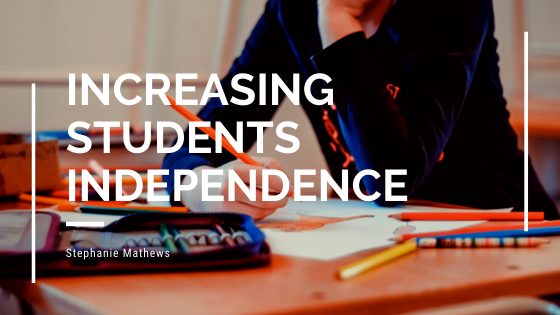The drawback of simply showing a student how to correct work is that the student is left with no intrinsic motivation and takes no responsibility for their own learning. The student only makes the changes on the teacher’s instruction in order to get a good grade. A better approach is one that gives students responsibility for their own learning.
In an English or writing class, this approach would begin with the student as the first assessor of the work, using a standardized checklist for effective writing. They can then choose the area they want to work on improving rather than the teacher deciding. There are tools that can help students select. The teacher’s job focuses on helping the student with the area the student has chosen for improvement.
Coaching feedback gives the instructor the ability to drill down to identify the core issue the student is having even if the student is unable to identify it. An example might be a student who wants to write with greater clarity. The problem might be the student is simply not organizing their time efficiently. They may be spending a great deal of time writing and still not making their intended point. A teacher’s coaching might encourage the student to try to write the piece within a certain amount of time.
The object here is not so much for the student to complete the piece in the time given but to observe what happens in that time. This may help the student determine what some of the issues are.
Teachers can also work with students to change the story they tell themselves about their work. This can teach students to see a correction not as a sign of failure but an opportunity to learn. Structuring a sentence with “yet” reveals how this can work. The phrase “I can’t put my thoughts down with any sort of clarity” changes significantly when “yet” is added to the end of it. This demonstrates to the student that learning is a process.
Ultimately, the key is to put the student in charge while giving some guidance along the way as needed. This motivates the student and creates a more independent learner who is eager to continuing seeking knowledge for its own sake.


